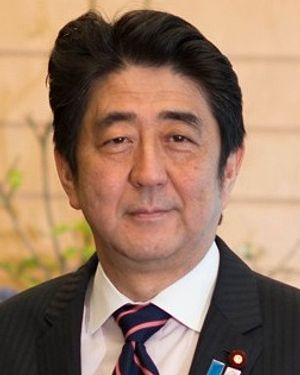Japan’s government is making more assertive statements in the lead up to economic reforms slated to be announced early next month, and will likely attempt to take advantage of recent positive media reports.
One of the chief structural reforms expected in June is in the area of corporate governance. On Tuesday the ruling LDP sought to increase expectations in draft proposals released to the press. Reuters reported that the corporate tax rate will be lowered, while the government will expand the tax base to keep tax revenue up, in hopes that Japan will become more attractive to foreign companies. The LDP is also hoping the timing of the tax cut will encourage businesses in their prospective investment, development and employment plans.
Another major avenue of reform the LDP hopes to implement is with the Government Pension Investment Fund. The GPIF holds 55 percent of its assets in Japanese government bonds bonds according to Bloomberg. With the Japanese benchmark 10-year yield still at just 0.59 percent, Deutsche Bank AG has called them the world’s most expensive debt.
The government of Prime Minister Shinzo Abe wants to add more committee members to the GPIF in order to move away from Japanese government bonds toward more profitable assets, according to the proposal seen by Reuters. Additionally, Abe would like to consolidate the country’s regional banks into “super regional banks” that would be able to take on greater risk and pursue more profitable forms of financing.
Abe’s government has a piece of good news coming up, as the Japan Business Federation (Keidanren) Chairman Hiromasa Yonekura is scheduled to retire on June 3. According to the Japan News, Yonekura publicly disparaged Abe’s economic policies before he took office in December 2012, consequently causing Abe to sideline the Federation’s influence. While the chairman of the Keidanren traditionally sat on the government’s Council on Economic and Fiscal Policy, Yonekura was never invited. The new chairman may seek to endorse the government’s policies in order to regain the seat, and Abe will most likely take advantage of that.
Japan’s latest trade figures are also likely to give Abe’s new policies a boost, at least in the short-term. Japan’s trade deficit shrank 7.8 percent in April compared to the previous year, according to Bloomberg. It is expected that the April sales tax increase played a part, as demand for energy imports picked up early in the year before falling 11.2 percent after the tax increase took effect.
Finally, the latest ministerial meeting between the 12 potential members of the Trans-Pacific Partnership showed small but incremental progress yesterday. According to a joint statement, the ministers “cemented [their] shared views on what is needed to bring negotiations to a close,” reported Kyodo News. Japan’s ministerial representative to the meeting in Singapore, Akira Amari, said the “fog is starting to clear up,” but he also warned that the possibility of finalizing any deal by July was overly optimistic.
Amari’s statements are in line with the Abe government’s overall strategy. While the LDP is interested in becoming part of the TPP agreement, bringing the trade deal toward any type of final agreement while Abe attempts to start economic structural reforms at home would complicate their implementation. A significant number of Japanese companies are apprehensive about competing globally. While progress on the issue is important for the government, Abe would prefer to keep domestic businesses happy as he seeks to pass his much anticipated structural reforms.
Abe may face an uncertain economic landscape this summer as he tries to stimulate inflation and contend with Japan’s yearly summer energy issue (due to the country’s nuclear reactors remaining offline). As Nobel laureate Robert Shiller has pointed out, Abe must stoke public optimism in order to keep the momentum of “Abenomics” from faltering as he implements the “third arrow” of structural reform. As the time runs out before these reforms start, Abe and his ruling LDP government will do everything in their power to increase expectations in the hope that the economy can sustain the last, and most crucial, part of his economic agenda.

































